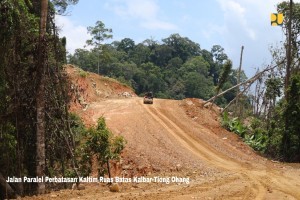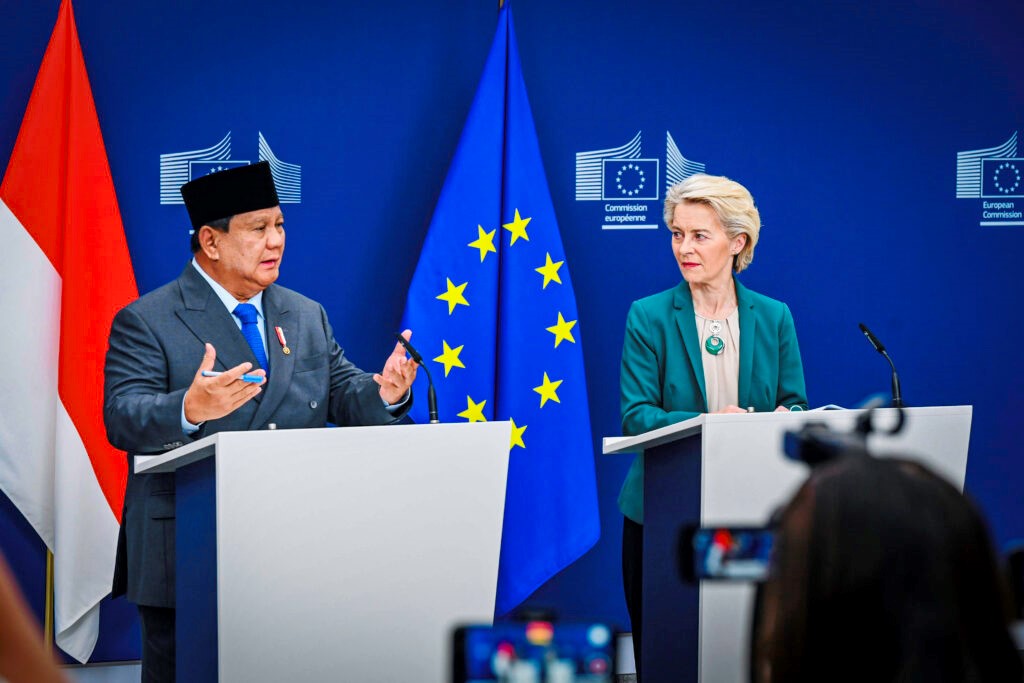Govt to Construct State Border Area in Kalimantan
The Government, through Ministry of Public Works and Public Housing, continues to develop infrastructure near state border areas in Kalimantan, Papua, and East Nusa Tenggara. This is in line with the realization of President Joko Jokowi Widodo and Vice President Jusuf Kallas Nawa Cita (nine priority programs) and these projects is intended to open isolated areas and equitable distribution of development results.
On Kalimantan Island, the parallel road borders construction is targeted to be done by the end of 2019. In addition, three cross-border posts (PLBN) will be built, namely Jagoi Babang PLBN, in Bengkayang Regency, West Kalimantan Province, as well as Sei Pancang PLBN and Long Midang or Kraya PLBN in the Nunukan Regency, North Kalimantan Province.
We want the people of Indonesia, especially those in the border areas, in the outer islands and in isolated areas to feel the presence of the country, feel the fruits of development. We want the people on the borders to have a sense of pride in their country, President Jokowi said some time ago.
The PLBN development is not only as an entry gate, but is also as an embryo of center of regional economic growth that can improve the welfare of border residents, Minister of Public Works and Public Housing Basuki Hadimuljono said.
Head of National Road Implementation Agency XII of Balikpapan Directorate General of Bina Marga Refly Ruddy Tangkere said that the total length of parallel road of 1,920 kilometers in Kalimantan included 824 km road in North Kalimantan and 244 km in East Kalimantan.
From 1,068-kilometer border roads in both of East and North Kalimantan Provinces, currently there are 185 kilometer unpenetrated roads, namely 126 kilometers in North Kalimantan and 59 kilometers in East Kalimantan. We targeted it to be connected and functional by the end of 2019 with partial asphalt conditions, some aggregate pavement with ground pavement, Refly said.
One of the parallel road borders of East Kalimantan that is currently being worked on is the West Kalimantan-Tiong Ohang section that spans along 15 km and was assisted by Indonesian Armys Engineering Directorate (Zeni TNI-AD) in land clearing and already penetrated completely in the form of a dirt road.
In this section, the Ministry is building a duplicate suspension bridge with a 120-meter span that connects Tiong Ohang Village and Long Krioq in Long Apari Sub-district which is separated by Mahakam River and most of its material must be imported from Jakarta, which becomes the biggest challenge of the construction.
The new suspension bridge construction aims to reduce the burden of existing suspension bridge that is not far from the construction site.
This road section is one of the six projects of border roads construction in East Kalimantan and North Kalimantan which stretches for 132 kilometers worth Rp330.72 billion and the contracts were signed in January 2018.
The other sections are 20 kilometer Pahangai-Long Boh Long section which collaborates with TNI Zeni, 30 kilometer Long Nawang-Long Pujungan 1 as well as Long Nawang-Long Pujungan, 20 kilometer Long Kemuat-Langap 3 and 17 kilometer Long Pujungan-Long Kemuat-Langap 4. Those last four sections are will be built by forest clearing.
Deputy Regent of Mahakam Ulu Yohanes Juan Jenau in his office said that the construction of parallel road borders would reduce the cost of goods and services, and open the land access for Mahakam Ulu residents who had been relying on boats until now as the main transportation.
For logistical distribution, we rely heavily on river transportation. During the dry season, Mahakam River receded and vice versa. This circumstance disrupts our logistics distribution and causing prices of basic commodities soar, Jenau said. (Biro Komunikasi Publik Kementerian PUPR/EN) (GWH/YM/Naster)









